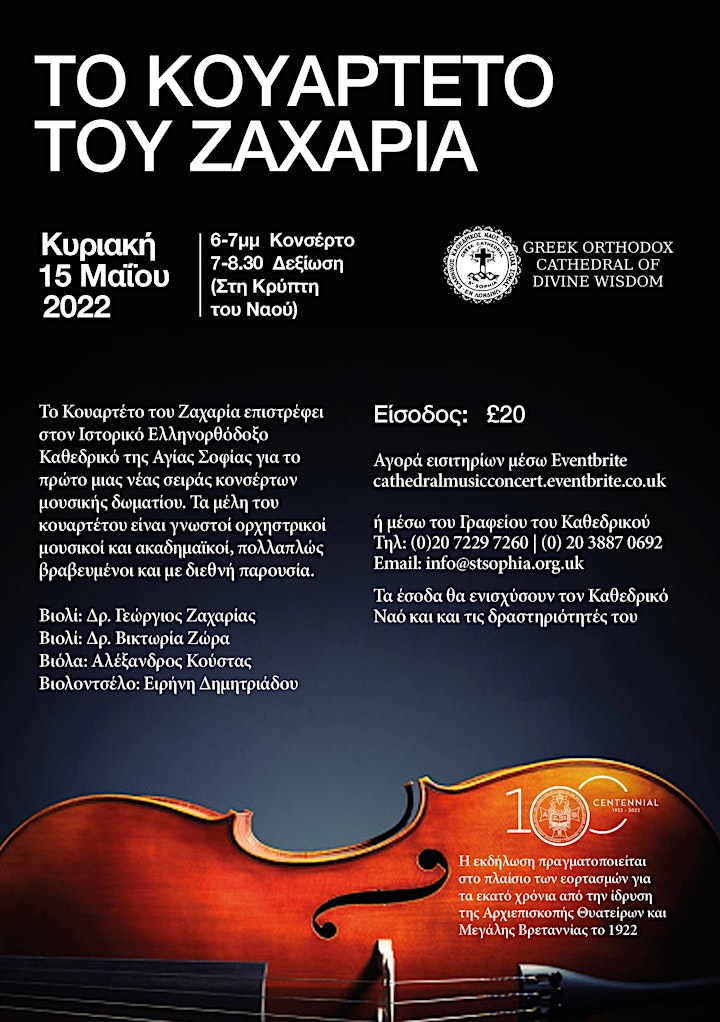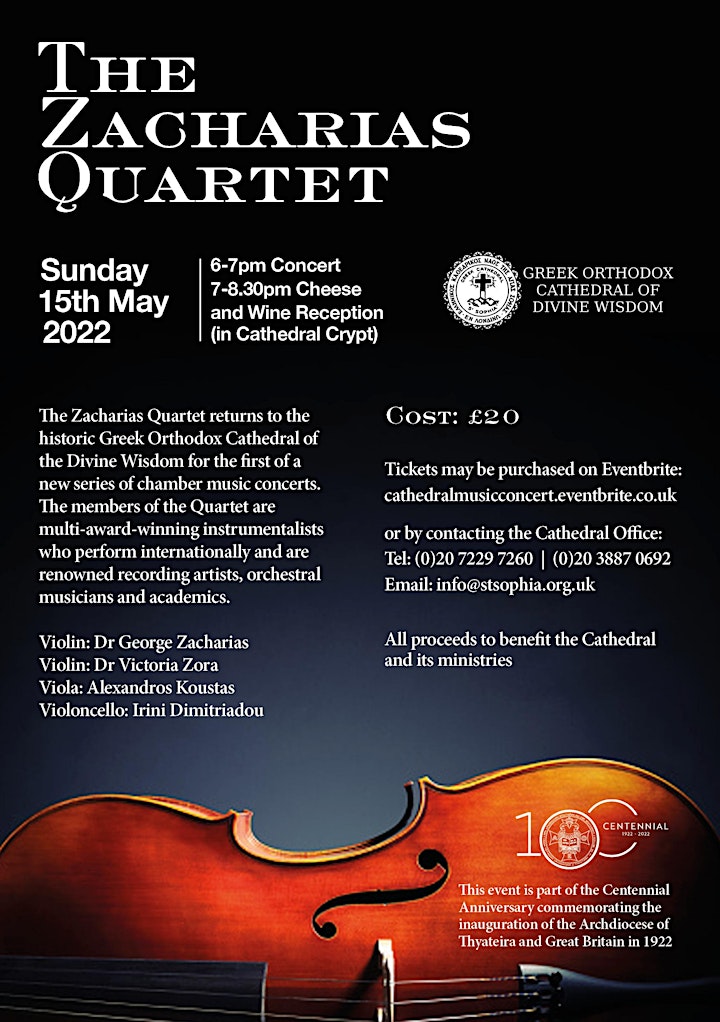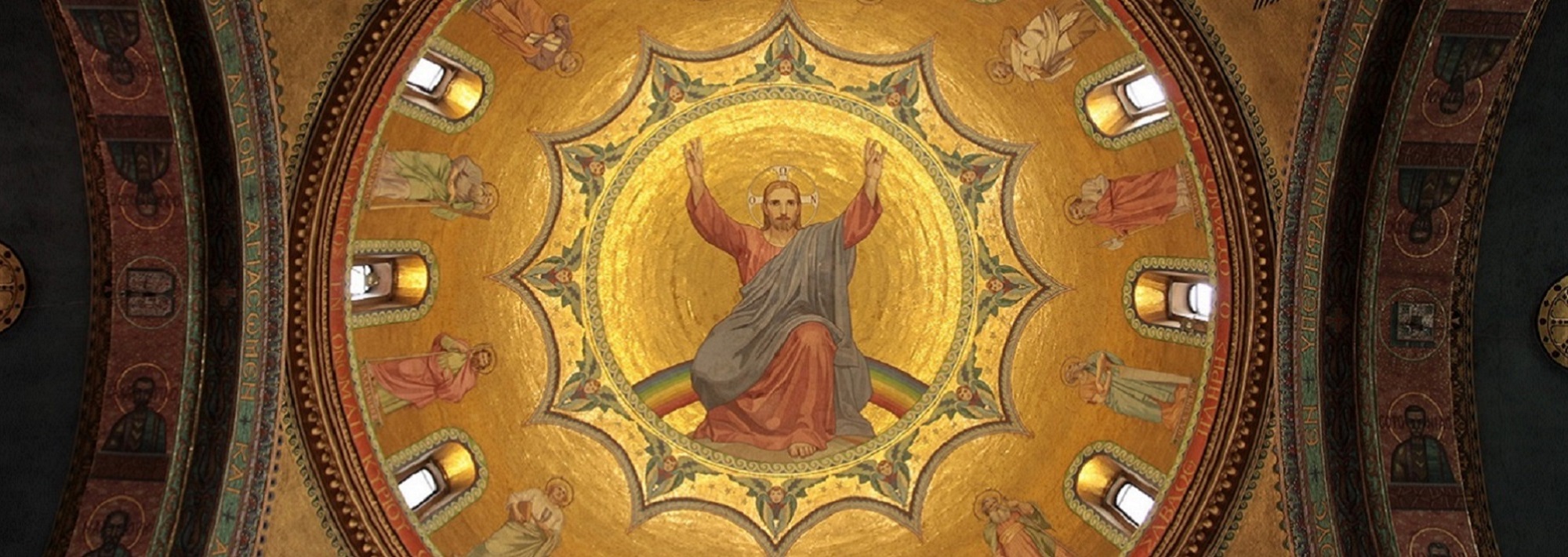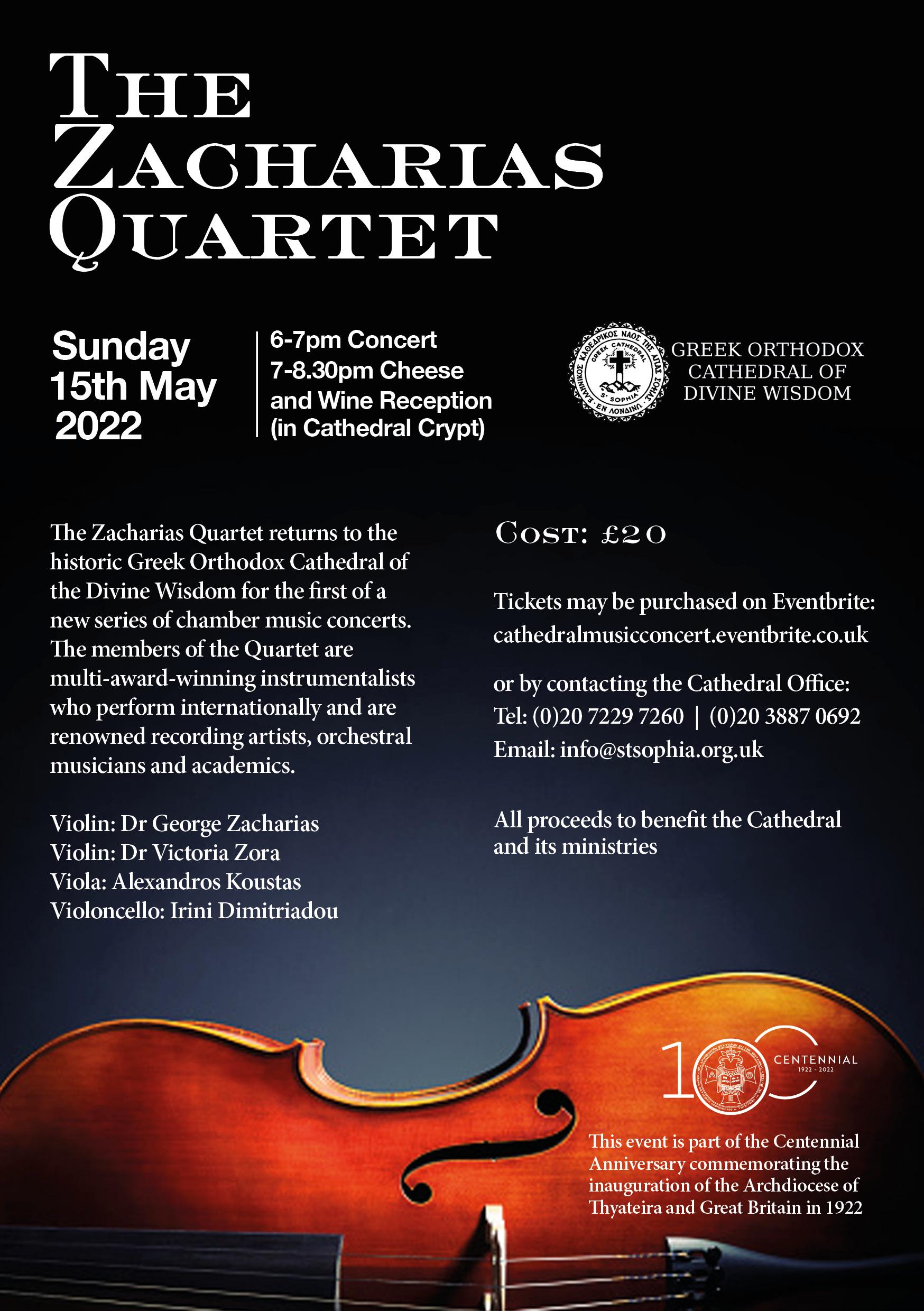The Zacharias Quartet returns to the GO Cathedral of the Divine Wisdom for the first of a new series of chamber music concerts. The UK-based members of the Quartet are multi-award-winning instrumentalists of the highest international calibre who are in very high demand as performing and recording artists, orchestral musicians, academics, and higher education lecturers.
Musicians:
Violin: Dr George Zacharias
Violin: Dr Victoria Zora
Viola: Alexandros Koustas
Violoncello: Irini Dimitriadou
Programme
Giacomo Puccini (1858-1924) – I Crisantemi
Composed in just one night, as alleged by Puccini in a letter written to his brother, I Crisantemi is a single-movement elegy in ternary form based on two plaintive melodies in C sharp minor. The first is restless, building its power from chromatic figures moving in contrary motion. In the middle, a mournful theme for the first violin sounds over pulsations in the viola; the first violin and cello then repeat the melody, in double octaves, with the pedal in the second violin. A brief return of the opening music closes the lament. Puccini thought enough of this music to reuse some of it in his opera Manon Lescaut, composed three years later in 1893. The main theme that opens the quartet serves as the orchestral backdrop for much of the action of Act IV, when Manon and des Grieux are wandering to their deaths in the desert wasteland of Louisiana, and the soloistic second theme underscores the Act III prison duet between the ill-fated lovers.
Antonín Dvořák (1841 – 1904): String Quartet n.12 in F major, Op. 96, ‘the American’
I. Allegro ma non troppo
II. Lento
III. Molto vivace
IV. Finale: vivace ma non troppo
Dvořák composed the quartet in 1893 during a summer vacation from his position as director (1892–1895) of the National Conservatory in New York City. He spent his vacation in the town of Spillville, Iowa, which was home to a Czech immigrant community. Dvořák felt very much at ease in Spillville. Writing to a friend he described his state of mind, away from hectic New York: “I have been on vacation since 3 June here in the Czech village of Spillville and I won’t be returning to New York until the latter half of September. The children arrived safely from Europe and we’re all happy together. We like it very much here and, thank God, I am working hard and I’m healthy and in good spirits.” He composed the quartet shortly after the New World Symphony, before that work had been performed.
Dvořák sketched the quartet in three days and completed it in thirteen more days, finishing the score with the comment “Thank God! I am content. It was fast.” It was his second attempt to write a quartet in F major: his first effort, 12 years earlier, produced only one movement. The American Quartet proved a turning point in Dvořák’s chamber music output: for decades he had toiled unsuccessfully to find a balance between his overflowing melodic invention and a clear structure. In the American Quartet it finally came together. Dvořák defended the apparent simplicity of the piece: “When I wrote this quartet in the Czech community of Spillville in 1893, I wanted to write something for once that was very melodious and straightforward, and dear Papa Haydn kept appearing before my eyes, and that is why it all turned out so simply. And it’s good that it did.”
For his symphony Dvořák gave the subtitle himself: “From the New World”. To the quartet he gave no subtitle himself, but there is the comment “The second composition written in America.”
Nikos Skalkottas (1904-1949): 5 Greek dances for string quartet
Epirotikos (Ser. I/4)
Kretikos (Ser. I/2)
Tsamikos (Ser. I/1)
Arkadikos (Ser. III/10)
Kleftikos (Ser. III/3)
Nikos Skalkottas, arguably the foremost composer of Greece in the first half of the 20th century and one of Schoenberg’s top composition students in Berlin, developed a unique compositional language that included his aptly named multi-dimensional serialism and transparent sound blocks. Though, he is best known for his numerous 12-tone orchestral works and concerti, he was also an avid collector of Greek folk and dance music — one might say the Bartók of Greece. The 5 Greek Dances are part of a series of 36 Greek dances that Skalkottas composed during 1934-36, originally for symphony orchestra and later transcribed for string quartet.
For further info please visit:
www.euterpemusic.org.uk
www.youtube.com/channel/UC9EPOb0zlLPiOwWBBy0l3RQ
https://www.linkedin.com/in/gezacharias/
Cheese and Wine reception will follow.




